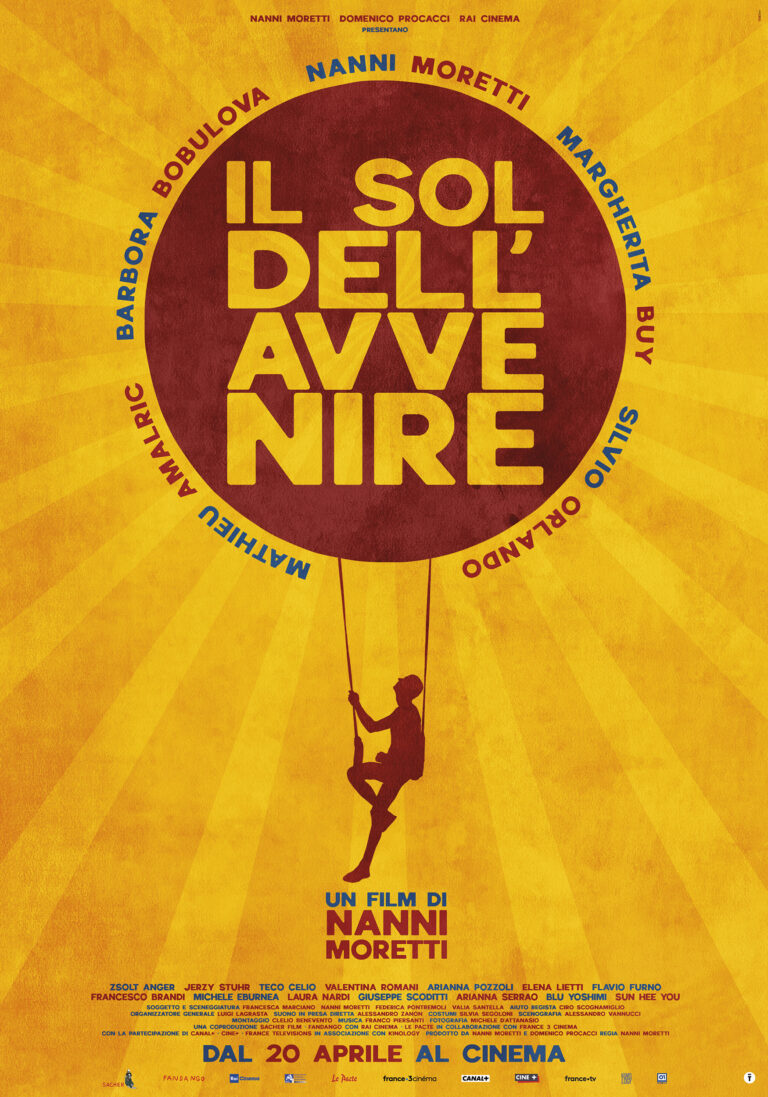
Few films capture the essence of cinema’s emotional power as profoundly as Giuseppe Tornatore’s Cinema Paradiso (1988). This Italian masterpiece is more than just a story—it’s a heartfelt tribute to the art of filmmaking, the communal experience of watching movies, and the bittersweet journey of growing up. With its enchanting score by Ennio Morricone and a deeply personal narrative, Cinema Paradiso continues to resonate with audiences worldwide as a timeless celebration of life, love, and the magic of the silver screen.
The Story of Salvatore and the Cinema Paradiso
The film unfolds as a memory, beginning with Salvatore “Toto” Di Vita, a successful filmmaker, returning to his Sicilian hometown upon hearing about the death of Alfredo, the projectionist of the local cinema, the Cinema Paradiso. This journey back home prompts Salvatore to reflect on his childhood, his love for cinema, and the bond he shared with Alfredo, who became a father figure and mentor.
Set in post-war Italy, the story reveals a simpler time when the Cinema Paradiso served as the heart of the village. It was not just a place to watch movies but a gathering spot for the community—a space where laughter, tears, and dreams were shared. Young Toto’s fascination with film reels, projectors, and the stories they told is infectious, and his friendship with Alfredo forms the emotional core of the movie. Their relationship is one of mutual love and respect, as Alfredo nurtures Toto’s passion for cinema while guiding him through life’s challenges.
As Salvatore grows older, he experiences love, loss, and the pull of ambition that eventually takes him away from his hometown. But the Cinema Paradiso, and everything it represents, remains a defining part of his identity.
Themes of Nostalgia and Change
At its heart, Cinema Paradiso is a film about nostalgia—the longing for a past that shaped us and the people who influenced our lives. Through Salvatore’s memories, Tornatore paints a vivid picture of childhood innocence, first love, and the formative experiences that stay with us forever.
The film also explores the inevitability of change. The Cinema Paradiso, once a symbol of communal joy and connection, eventually falls into disrepair as modernity encroaches on the village. This decline mirrors Salvatore’s journey of leaving his roots behind to pursue his dreams. Tornatore masterfully contrasts the warmth and intimacy of the past with the cold detachment of the present, creating a poignant commentary on the passage of time and the price of progress.
The Power of Cinema
Cinema Paradiso is, above all, a love letter to the movies. Tornatore captures the transformative power of cinema, portraying it as a source of escape, inspiration, and connection. For the villagers, the Cinema Paradiso was more than entertainment—it was a lifeline to a world beyond their own, a place where they could dream and forget their troubles, if only for a few hours.
Through Toto’s wide-eyed wonder and Alfredo’s wisdom, the film celebrates the artistry of storytelling and its ability to shape lives. The iconic montage of censored kisses, revealed at the film’s end, is a testament to the enduring beauty of film and its capacity to evoke profound emotion. It’s a moment that leaves audiences in tears, not just for its sentiment but for its reminder of the fleeting, precious nature of love and memory.
The Relationship Between Toto and Alfredo
The bond between Toto and Alfredo is the soul of Cinema Paradiso. Alfredo, played with warmth and gravitas by Philippe Noiret, becomes a surrogate father to Toto, filling a void left by Salvatore’s absent biological father. Their dynamic is one of mutual growth—while Alfredo imparts life lessons to Toto, the boy’s passion for cinema rekindles Alfredo’s own sense of purpose.
Their farewell scene, where Alfredo encourages Toto to leave the village and never look back, is both heartbreaking and uplifting. Alfredo’s words, urging Salvatore to pursue his dreams at all costs, resonate deeply, encapsulating the bittersweet nature of love and sacrifice.
Ennio Morricone’s Timeless Score
No discussion of Cinema Paradiso would be complete without mentioning Ennio Morricone’s unforgettable score. The music, with its hauntingly beautiful melodies, perfectly complements the film’s themes of love, loss, and nostalgia. Morricone’s compositions elevate the emotional impact of the story, creating a soundtrack that lingers in the heart long after the credits roll.
The main theme, in particular, is a masterpiece of cinematic music, encapsulating the film’s wistful tone and its celebration of memory. It is as integral to Cinema Paradiso as the story itself, weaving together the emotions of the characters and the audience into a shared experience of longing and joy.
The Film’s Universal Appeal
While Cinema Paradiso is deeply rooted in its Italian setting, its themes are universal. The longing for childhood innocence, the pain of leaving behind loved ones, and the transformative power of art are experiences that resonate across cultures. Tornatore’s ability to capture these feelings with such authenticity is what makes the film a classic.
Audiences around the world have embraced Cinema Paradiso as a reminder of the enduring value of relationships and the importance of cherishing the moments that shape us. Its timeless message ensures that it continues to be discovered and adored by new generations.
Critical Acclaim and Legacy
Upon its release, Cinema Paradiso received widespread acclaim, winning the Grand Prix at the Cannes Film Festival and the Academy Award for Best Foreign Language Film in 1990. Critics praised its evocative storytelling, masterful direction, and heartfelt performances. The film’s success cemented Tornatore’s reputation as one of Italy’s finest filmmakers and brought international attention to Italian cinema.
Decades later, Cinema Paradiso remains a beloved classic. It is often cited as one of the greatest films about cinema and continues to inspire filmmakers and audiences alike. Its themes of love, loss, and the magic of movies are as relevant today as they were at the time of its release.
Conclusion
Cinema Paradiso is more than just a film—it’s an emotional journey that speaks to the heart of what it means to be human. Giuseppe Tornatore’s masterpiece invites us to reflect on the power of memory, the influence of those who guide us, and the enduring magic of storytelling. With its captivating performances, stunning music, and universal themes, Cinema Paradiso is a film that transcends time and culture, leaving an indelible mark on all who experience it.
As Salvatore watches the reel of lost kisses at the end of the film, we are reminded that cinema, like life, is fleeting yet profoundly beautiful. Cinema Paradiso is a testament to the joy and sorrow of existence, and its message will continue to resonate for generations to come.





